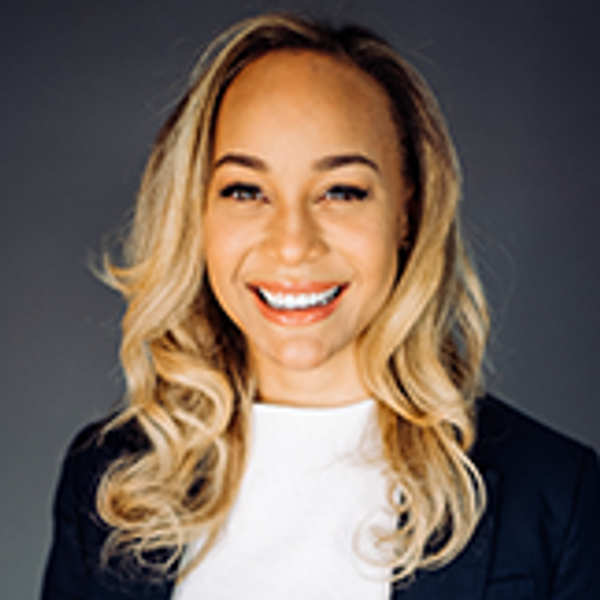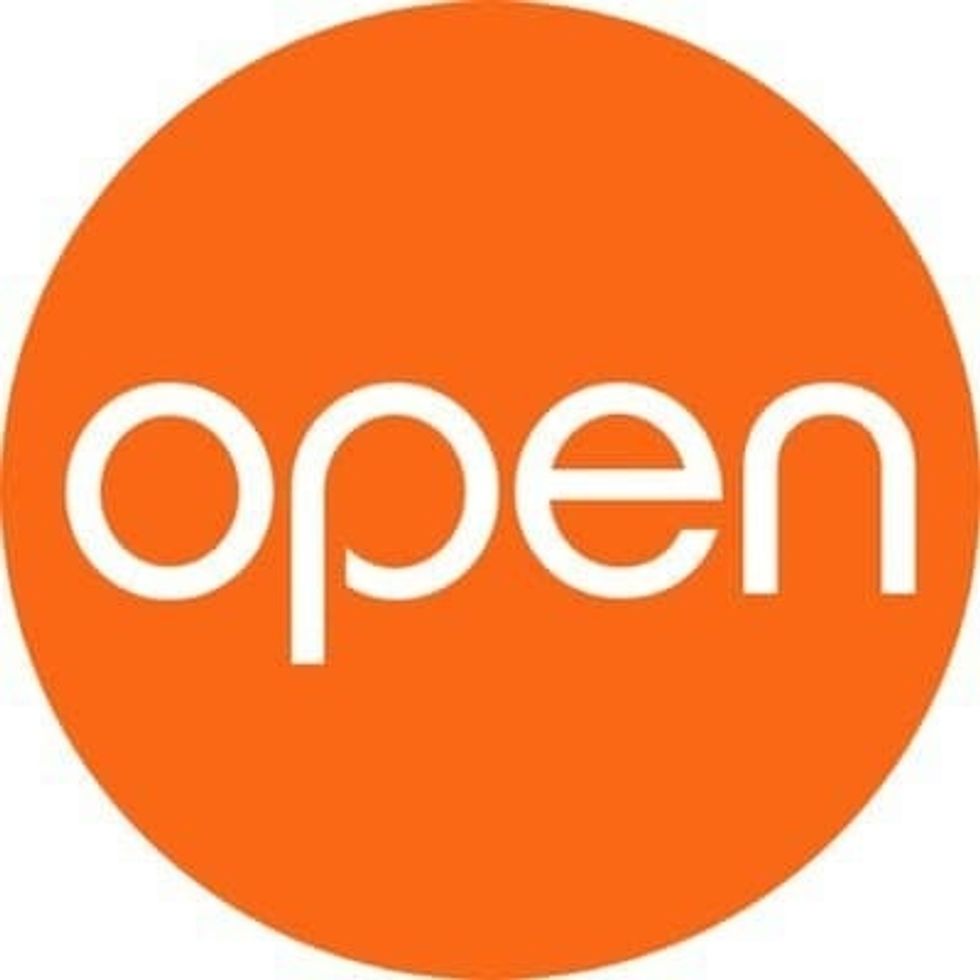GoodRx Is Named Startup of the Year at dot.LA Summit Awards
Rachel Uranga is dot.LA's Managing Editor, News. She is a former Mexico-based market correspondent at Reuters and has worked for several Southern California news outlets, including the Los Angeles Business Journal and the Los Angeles Daily News. She has covered everything from IPOs to immigration. Uranga is a graduate of the Columbia School of Journalism and California State University Northridge. A Los Angeles native, she lives with her husband, son and their felines.

GoodRx earned dot.LA's top 2020 Startup award on Wednesday, beating out the popular sneaker reseller GOAT, the meditation application Headspace, mobile gamer Scopely and viral-video app TikTok.
"GoodRx started in Los Angeles, and will always be a Los Angeles-based company," said co-CEO Doug Hirsch. "We're so excited about the support we've received over the last decade from both entrepreneurs and investors and just incredible people that make up the ecosystem here in California and specifically in Los Angeles."
GoodRx was the first Los Angeles tech company to go public this year. It's mission to lower the prices of prescription drugs for Americans has made it one of the most-downloaded medical apps in the country.
"We're excited for the future and we appreciate the recognition," he said.
dot.LA wrapped up its inaugural Summit with the 2020 Startup Awards that honor the ingenuity and creativity propelling the startup scene in Southern California. More than 120 nominations were received from dot.LA's audience. The winners were chosen by a blue ribbon panel of judges, along with more than votes from the public.
Other winners included Entrepreneur of the Year, Tala CEO Shivani Siroya, Curative for Pivot of the Year, Blavity CEO Morgan DeBaun for Rising Entrepreneur, Openpath for Rising Startup and Social Justice Award went to Act One Ventures partner Alejandro Guerrero.
"We wanted to use this opportunity to shine a light on some of the most exciting, most driven and most world-changing people in companies in our world today," said dot.LA CEO Sam Adams.
Pivot of the Year: Curative Inc.

Curative was founded earlier this year by Fred Turner, an Oxford dropout. His company was then based in the Bay Area and tested for sepsis before it pivoted to provide COVID testing. As the pandemic emerged, he established a lab in San Dimas with the help of local venture capitalists that would eventually become Curative's home base. The company's saliva- based tests now account for about 10% of all testing nationally and Curative has an exclusive deal with the city of Los Angeles to provide testing.
"On behalf of our CEO Fred Turner and everyone who just want to thank you," said Curative spokesman Pasqualle Gianna. As you know, we pivoted from sepsis testing to COVID testing."
Finalists
Quantgene: The company typically offers AI-powered blood test systems for early cancer detection but now provides COVID testing and logistics for those going back to work.
Swoop: The startup focused on group transportation but developed software that limousine charter operators and their suppliers, could utilize during the pandemic as regular business dried up.
PRISM Bags: This company planned to launch their signature product, a woman's work bag but as the pandemic beared down created one suited that included mask pockets.
WELL Health Inc.: Funded and engineered the Rapid Release Program in March '20, which allowed health systems to manage urgent COVID-19 patient communications at scale.
Social Justice Award: Alejandro Guerrero

More than 20 VCs have signed onto to Act One Ventures partner Alejandro Guerrero's Diversity Rider Initiative.
The firms have pledged to add language in term sheets submitted to startups that they will make their "commercial best efforts to offer and make every attempt to include as a co-investor in the financing" at least one Black check writer or other underrepresented group."
Guerrero is the child of Mexican immigrants who said he often found he was the only person of color in the room when investment deals north of six figures were being made. He said he was inspired by the George Floyd protests and the push the industry to recognize long-standing inequities.
Finalists
Candace Walker, Co-Founder of Just US app: Created a hands-free voice control app that notifies your designated contacts when you've been stopped by police.
Derek Smith, Founder of Plug-In South LA: Created a tech startup community and accelerator program for entrepreneurs from under-represented backgrounds; produced the Urban Tech Connect conference.
Lolita Taub, Co-Founder and GP at The Community Fund: First-generation Latinx operator and investor that launched a $5 million early-stage fund to invest in community-driven companies.
Miki Reynolds, Executive Director, Grid110: Leads a no-equity, LA-based accelerator for underrepresented founders
Rising Entrepreneur: Morgan DeBaun

Morgan DeBaun is the founder and CEO of Blavity Inc., a leading news company and media brand for Black millennials and Gen Z. The outlet has been a leading voice for diversity. She launched Blavity in 2014; it now reaches over 30 million millennials a month.
Finalists
Cristina de la Peña, CEO & founder of Synapbox
Jessica Nouhavandi, co-CEO of Honeybee Health
Ksenia Yudina, CEO of UNest
Robert Luo, CEO & founder of Mi Terro
Rising Startup: Openpath

The property-tech firm provides s touchless-entry activated by one's mobile device to doors, gates, elevators and lobby check-ins.
James Segil and Alex Kazerani co-founded Openpath in 2016 along with Chief Technology Officer Rob Peters, Chief Security Officer Samy Kamkar, and Chief Revenue Officer Phil Goldsmith.
The company recently raised $35 million and has seen their value proposition become all the more useful in the post-pandemic era.
"I'm incredibly honored and humbled to be here amongst so many great entrepreneurs and great companies here in L.A.," Kazerani said. "On behalf of about 450,000 Openpath users and our entire team, we really want to thank dot.la"
Finalists
Pipe: A platform that offers non-dilutive financing to SaaS companies through an instant cash advance against the full annual value of software subscriptions.
PlayVS: Connects online games with official school administration and branding, elevating Esports from hobby to school-sponsored activity.
Outer: A direct to consumer outdoor furniture brand.
Wave: An entertainment technology company that turns performers into digital avatars and puts them on virtual stages.
Entrepreneur of the Year: Shivani Siroya

Shivani Siroya is the CEO and founder at Tala, a fintech company that offers microloans to people that often don't have a formal credit history. The company has extended $1 billion in microloans to 4 million customers in emerging markets and was last valued at $700 million. Siroya has been named one of Forbes' "40 under 40."
Finalists
Alex Canter, CEO and co-founder of software company Ordermark
Andrew Peterson, CEO and co-founder of Signal Sciences
Doug Hirsch and Trevor Bezdek, co-founders and co-CEOs of GoodRx
Imran Khan, fo-founder and CEO of Verishop
Startup of the Year: GoodRx

The prescription-discount app GoodRx became one of the first Los Angeles tech companies to go public this year.
Co-founded by former Facebook executive Doug Hirsch and Trevor Bezdek, the Santa Monica company makes money by collecting fees from pharmacy benefits managers.
GoodRx is the most downloaded medical app in the United States and boasts 70,000 pharmacies on its platform. It's also profitable. The company earned $54 million in profit for the first six months ending in June, up from $31 million over the same time last year.
The company expanded into telehealth with the purchase of Heydoctor in 2019.
Finalists
GOAT: Fast-growing global luxury shoe and apparel retailer.
Headspace: A meditation app that recently raised $100 million in debt and equity.
Scopely: A mobile video game company that acquired FoxNextGames from Disney in January.
TikTok: The video-sharing platform was the top grossing app on iOS App Store globally in Q2 2020.
- The dot.LA Summit Focuses on L.A.'s Growing Startup Scene - dot.LA ›
- GoodRx Stock Plummets After Amazon Announcement - dot.LA ›
- Los Angeles' Top Entrepreneurs, as Picked by its VCs - dot.LA ›
- Gen Z Prefers Video Games to Streaming - dot.LA ›
- Save the Date: THE DOT.LA 2021 SUMMIT - dot.LA ›
- GoodRx Acquires Pharmacy Platform VitaCare for $150 Million ›
- Nominate Leaders for dot.LA’s Startup Awards! - dot.LA ›
- Nominate Leaders for dot.LA’s Startup Awards! - dot.LA ›
- dot.LA Summit 2022: A Guide to Events - dot.LA ›
Rachel Uranga is dot.LA's Managing Editor, News. She is a former Mexico-based market correspondent at Reuters and has worked for several Southern California news outlets, including the Los Angeles Business Journal and the Los Angeles Daily News. She has covered everything from IPOs to immigration. Uranga is a graduate of the Columbia School of Journalism and California State University Northridge. A Los Angeles native, she lives with her husband, son and their felines.




 Image Source: JetZero
Image Source: JetZero